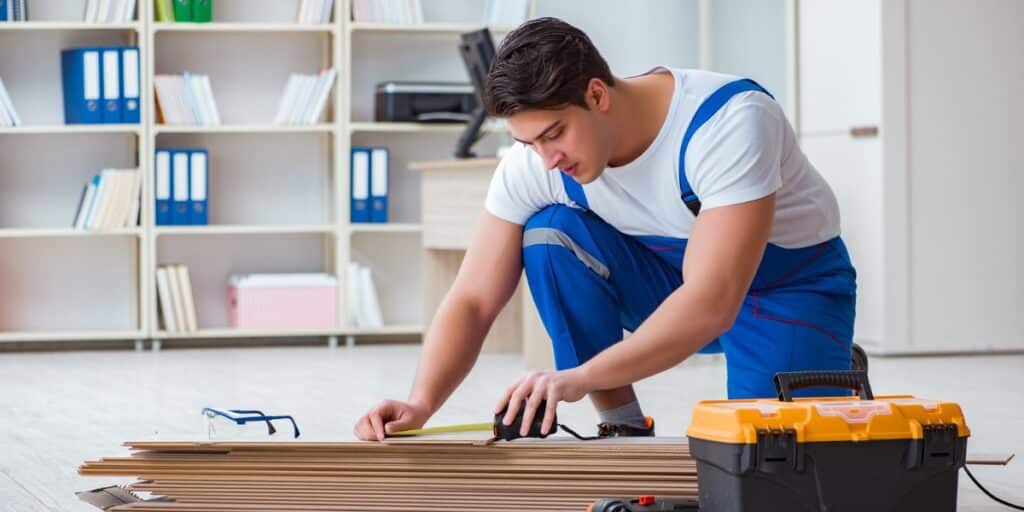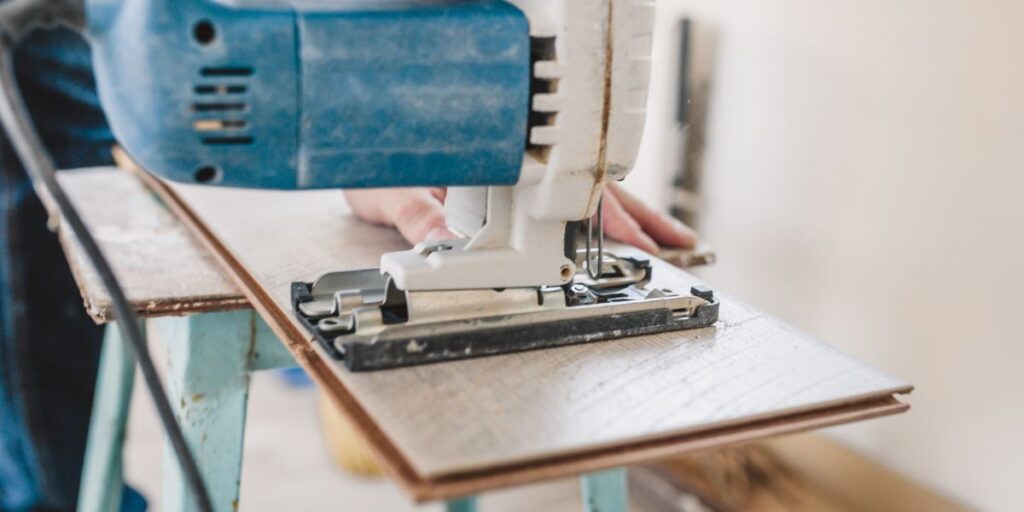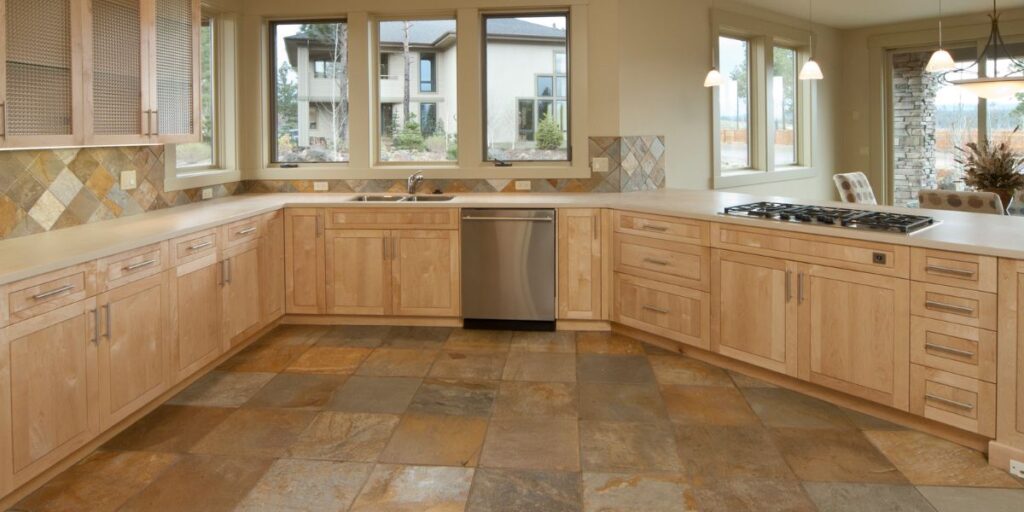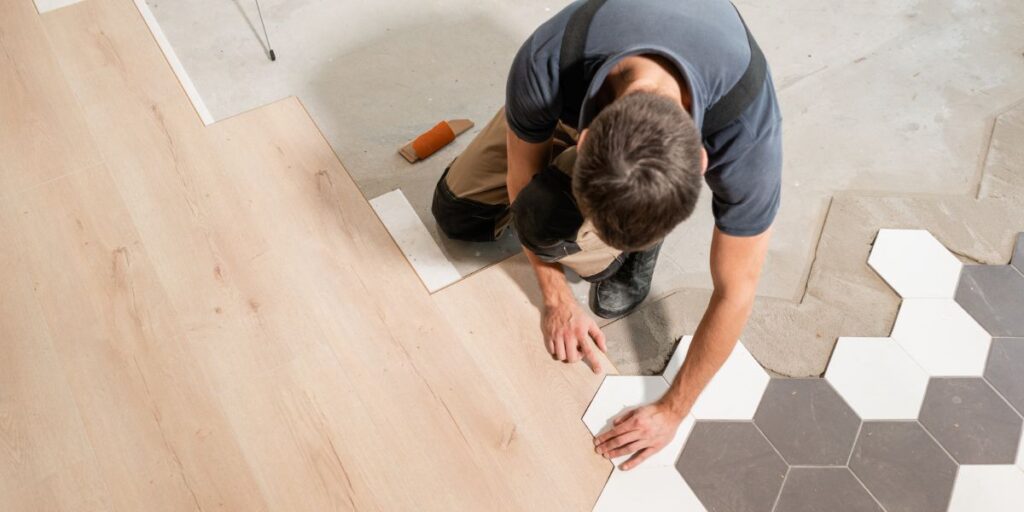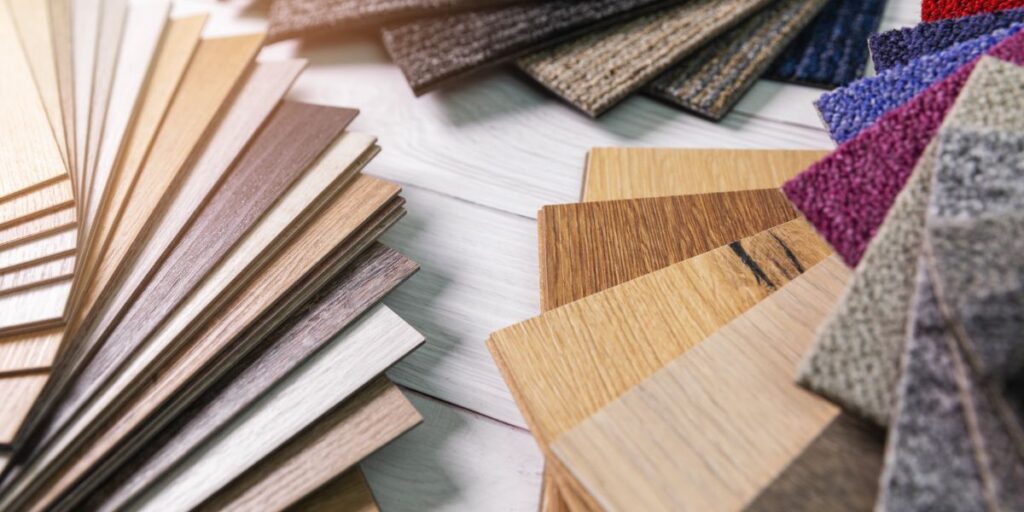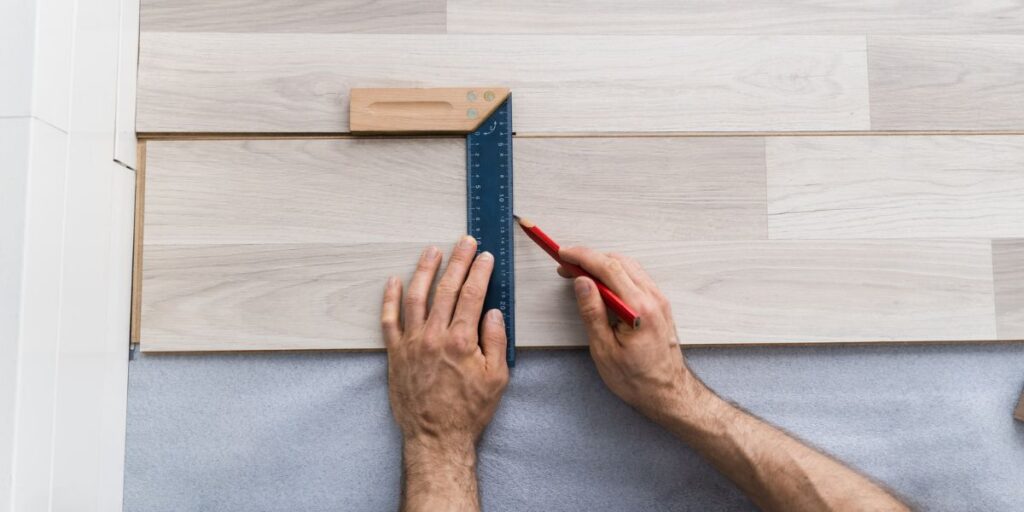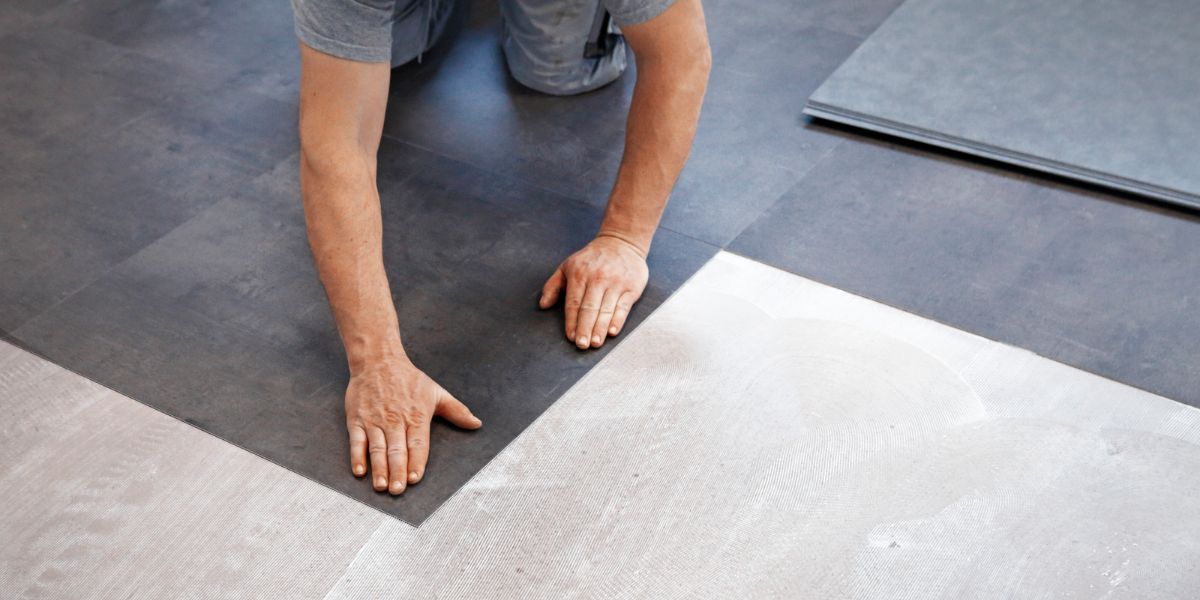
Vinyl flooring has become a popular choice for homeowners due to its durability, affordability, and ease of maintenance. However, while many people are drawn to the benefits of vinyl flooring, few consider how long it will last. This is a crucial factor that should not be overlooked when making decisions about home renovations.
A brief overview of vinyl flooring
Before delving into the importance of knowing how long vinyl flooring lasts, it’s essential to understand what it is. Vinyl flooring is made up of synthetic materials such as PVC, which are designed to mimic the look of natural materials like hardwood or stone. There are two main types of vinyl flooring: sheet and tile.
Sheet vinyl comes in large rolls and is best suited for large areas with minimal seams. Tile vinyl comes in smaller squares that can be installed individually and allows for greater design flexibility.
Importance of Knowing How Long Does Vinyl Flooring Last
Knowing the lifespan of your vinyl flooring is important for several reasons. First and foremost, it helps you make an informed decision about whether or not it’s worth investing in this type of flooring in the first place.
Additionally, understanding the longevity of your vinyl floor allows you to plan for future maintenance expenses and replacement costs. Knowing when your floor may need to be replaced can help you budget accordingly and avoid unexpected financial burdens down the line.
Moreover, if you plan on selling your home at some point in the future, having a durable floor that will last for years to come is an attractive selling point that can increase your home’s value. On the other hand, a worn-out or damaged floor can detract from potential buyers’ interest in your property.
Understanding how long a vinyl floor last should be an important consideration before installing one in your home. It not only helps you make an informed decision but also ensures that you can enjoy its benefits for as long as possible.
What is Vinyl Flooring?
Vinyl flooring is a synthetic flooring option made of PVC, also known as polyvinyl chloride. It is one of the most popular flooring options in the market today, and for a good reason. Vinyl flooring comes in different types that suit different budgets and preferences, making it a versatile option for homeowners.
Types of Vinyl Flooring
There are two main types of vinyl flooring: sheet vinyl and luxury vinyl tile (LVT). Sheet vinyl is made up of large rolls that are cut to fit the room’s dimensions. It’s an affordable option that’s easy to install but can be prone to curling and peeling over time.
On the other hand, LVT is a more modern type of vinyl that comes in individual tiles or planks. LVT has become increasingly popular due to its durability and design options; it can mimic almost any type of hardwood or tile while still being comfortable underfoot.
Advantages and Disadvantages
One advantage of opting for vinyl flooring is its affordability compared to other options like hardwood or natural stone. It’s also waterproof, making it ideal for areas like kitchens and bathrooms where spills are common.
Another advantage is its durability; high-quality vinyl can last up to 20 years with proper care and maintenance. Additionally, it’s a low-maintenance option that only requires regular cleaning without requiring any special treatments or finishes.
However, there are some disadvantages to consider before choosing this type of flooring. One drawback is that it can emit volatile organic compounds (VOCs) when first installed, which can be harmful to health if not properly ventilated during installation.
Another disadvantage is that certain types of vinyl flooring may not be as eco-friendly compared to other options like bamboo or cork. Additionally, while LVT may have superior durability compared to sheet vinyl, it comes with a heftier price tag.
Overall, vinyl flooring is a great option for those who want a versatile, durable, and affordable flooring solution. However, it’s important to consider the disadvantages before making a final decision.
RELATED: Revamp Your Floors: The Ultimate Guide to Installing New Flooring Over Ceramic Tile
Factors that Affect the Lifespan of Vinyl Flooring
Quality of Materials Used
You get what you pay for, and this is especially true when it comes to vinyl flooring. If you try to cut corners and buy cheaper materials, don’t be surprised when your floor starts to peel or discolor after only a few years.
High-quality vinyl flooring is designed to withstand wear and tear, moisture, and other environmental factors that can cause damage over time. So don’t be cheap – invest in the best materials you can afford if you want your vinyl floor to last.
Installation Process and Maintenance
Even if you use high-quality materials, a poor installation can cause serious problems down the line. Make sure your installer knows what they’re doing and follows the manufacturer’s instructions carefully.
They should also make sure that the subfloor is properly prepared before installation begins. As for maintenance, it’s important to follow proper cleaning procedures and avoid using harsh chemicals that could damage the surface of your vinyl floor.
Foot Traffic and Usage
The more people (and pets) walking on your vinyl floor every day, the more wear and tear it will experience. This is especially true in high-traffic areas like hallways or kitchens, where spills are more likely to occur. If you have kids or pets running around all day, consider investing in a thicker vinyl floor with extra layers of protection.
Environmental Factors
Humidity levels can greatly affect the lifespan of your vinyl flooring. If you live in a humid climate or have a lot of moisture in your home (like from showering without ventilation), consider investing in waterproof vinyl floorings options like luxury vinyl planks (LVP) or luxury vinyl tiles (LVT).
Additionally, direct sunlight can cause discoloration over time, so make sure window coverings are used during peak hours. Keep in mind, however, that even the most durable vinyl floors will fade or discolor over time if exposed to direct sunlight for extended periods of time.
How long can you expect your vinyl flooring to last?
Vinyl flooring is an excellent option for homeowners looking for a durable, low-maintenance floor covering. However, just like any other type of flooring material, vinyl has a limited lifespan. The longevity of your vinyl floor depends on several factors, including the quality of materials used, the installation process and maintenance routine, foot traffic and usage, and environmental factors.
The average lifespan for different types of vinyl flooring
The average lifespan of vinyl flooring varies depending on the type you choose. Generally speaking, sheet vinyl has a longer lifespan than tile or plank vinyl. Sheet vinyl can last up to 20 years with proper care and maintenance.
On the other hand, luxury vinyl tile (LVT) or luxury vinyl plank (LVP) typically last between 5-15 years. Additionally, there are variations within each type of vinyl flooring that can affect how long it lasts.
For instance, thicker gauge LVT or LVP will likely have a longer lifespan than their thinner counterparts. Similarly, higher-end sheet vinyl made with better materials will outlast lower-quality options.
Real-life examples
Of course, the actual lifespan of your specific vinyl floor will depend on many factors unique to your situation. However, there are some real-life examples that illustrate how long you can reasonably expect your floor to last.
One homeowner reported having sheet vinyl installed in their kitchen over 30 years ago, that’s still in great condition today thanks to regular cleaning and upkeep. Another homeowner reported needing to replace their LVP after just five years due to excessive wear and tear from pets and heavy foot traffic.
It’s important to remember that while these examples give us some idea of what we can expect from our floors regarding longevity, they’re not guaranteed. Every home is different and has its own set of unique circumstances that can affect how long your vinyl floor will last.
Signs that your vinyl flooring needs to be replaced
Vinyl flooring can last for many years, but eventually, even the most durable floors will need to be replaced. Knowing when it’s time to replace your vinyl flooring can save you time, money, and potential hazards in the future. Here are some of the most common signs that it’s time to replace your vinyl flooring.
Wear and Tear
One of the first signs that your vinyl flooring needs replacing is visible wear and tear. Vinyl floors are susceptible to scratches, scuffs, and dents over time.
If you notice significant damage or wear in high-traffic areas of your home or business, it may be time to consider replacing your floors. Not only does worn-out vinyl look unsightly, but it can also pose a safety hazard if pieces start coming loose.
Discoloration or Fading
Another sign that you need new vinyl flooring is discoloration or fading. When exposed to sunlight over a prolonged period of time, some types of vinyl can start to fade and lose their vibrant color.
Chemicals such as bleach or other harsh cleaning products can also cause discoloration on vinyl floors. If you notice that certain areas of your floor have become discolored or faded more than others, this could indicate a problem with sun exposure or chemical damage over time.
Peeling or Curling Edges
Peeling or curling edges on your vinyl floor suggest that it’s probably beyond its useful life. When edges start curling up around doorways or along baseboards, it’s likely due to water damage from leaks in the subfloor underneath the material. The moisture causes adhesive deterioration leading the edges to rise up, making them susceptible to tripping hazards.
Replacing worn-out and damaged floors with new ones not only ensures safety but also boosts the overall aesthetic appeal of your space. Knowing when it’s time to replace your vinyl flooring can save you money in the long run by avoiding costly repairs and potential safety hazards from damaged floors.
RELATED: How to Get Scratches Out of Vinyl Flooring?
Tips for prolonging the life of your vinyl flooring
Regular cleaning and maintenance routine
Maintaining a regular cleaning schedule for your vinyl floors is crucial to extending their lifespan. Without proper care, dirt and grime can build up over time, causing scratches and discoloration. Sweep or vacuum your floors daily to remove any debris or dirt that may have accumulated throughout the day.
For a deeper clean, use a damp mop with a neutral pH cleaner specifically designed for vinyl floors. Another essential element of maintaining your vinyl flooring is keeping it dry.
Vinyl flooring can be damaged by excessive moisture, so wipe up any spills immediately to prevent water damage. Avoid using abrasive cleaners or tools like steel wool or scouring pads, as these can scratch the surface of your floor.
Proper installation techniques
One of the most critical factors in ensuring that your vinyl flooring lasts as long as possible is proper installation. A poorly installed floor will not only look bad but also be more prone to damage from foot traffic. When installing vinyl flooring, make sure you follow the manufacturer’s instructions carefully.
Proper subfloor preparation is essential; any bumps or irregularities must be smoothed out before installing the new floor. The adhesive used should also match the type of vinyl used; otherwise, it could lead to premature wear and tear.
Use furniture pads to prevent scratches
No matter how hard we try, our furniture will inevitably move around on our floors and cause scratches over time. The good news is that these scratches are entirely avoidable with just a little proactive effort. The simplest way to prevent furniture from damaging your vinyl floors is by using furniture pads underneath each leg or base of heavy items like sofas, tables, chairs, etcetera.
These pads act as buffers between the furniture and floor surface protecting against scratches from everyday movement. , taking care of your vinyl floors requires commitment and attention to detail.
A few simple steps like regular cleaning, proper installation, and the use of furniture protection, can go a long way in extending the lifespan of your vinyl flooring. By following these tips, you can ensure that your floors stay looking fresh and new for years to come.
Frequently Asked Questions
What are the disadvantages of vinyl flooring?
Disadvantages of vinyl flooring include susceptibility to scratches, dents, and fading, as well as its inability to be refinished. Some vinyl products emit VOCs, and their lifespan is shorter compared to other options.
How often should you replace vinyl flooring?
The lifespan of vinyl flooring varies but generally lasts 10 to 20 years before replacement is needed.
What lasts longer, tile or vinyl flooring?
Tile flooring tends to outlast vinyl flooring due to its durability.
Is it worth putting vinyl flooring?
The worth of vinyl flooring depends on individual preferences, offering benefits like durability, water resistance, easy maintenance, and versatile designs. However, it may not match the value or longevity of other materials like hardwood or tile.
Why vinyl flooring is better than tile?
Vinyl flooring is often preferred over tile due to affordability, easy installation, low maintenance, comfort underfoot, sound absorption, and impact resistance.
Is vinyl flooring waterproof?
Vinyl flooring is highly water-resistant, with many products marketed as waterproof, but it can still sustain damage from excessive water exposure at seams or edges.
Conclusion
Recap on the importance of understanding how long does a vinyl floor last
Vinyl flooring has become increasingly popular in recent years due to its durability, affordability, and easy maintenance. However, it is important to understand that not all vinyl flooring is created equal, and its lifespan can vary greatly depending on several factors. By understanding what affects the longevity of your vinyl flooring, you can make informed decisions about which type of vinyl flooring to choose and how best to maintain it.
Final thoughts on maintaining a durable, long-lasting floor
To ensure the longevity of your vinyl flooring, it is crucial to properly maintain it. This includes regular cleaning using appropriate products and techniques for your specific type of vinyl flooring. Additionally, avoiding heavy foot traffic or placing heavy furniture directly on the floor can help prevent premature wear and tear.
Furthermore, proper installation by a professional with experience in working with vinyl flooring can also greatly impact its lifespan. Don’t be tempted to cut corners by attempting self-installation or hiring an inexperienced contractor.
By investing in high-quality materials and proper installation techniques, as well as implementing a regular maintenance routine, you can enjoy a long-lasting and beautiful vinyl floor for years to come. After all, why settle for anything less when you could have a durable and stylish floor that stands the test of time?
RESOURCE: Occupational Safety and Health Administration (OSHA): Cleaning Industry Safety and Health

